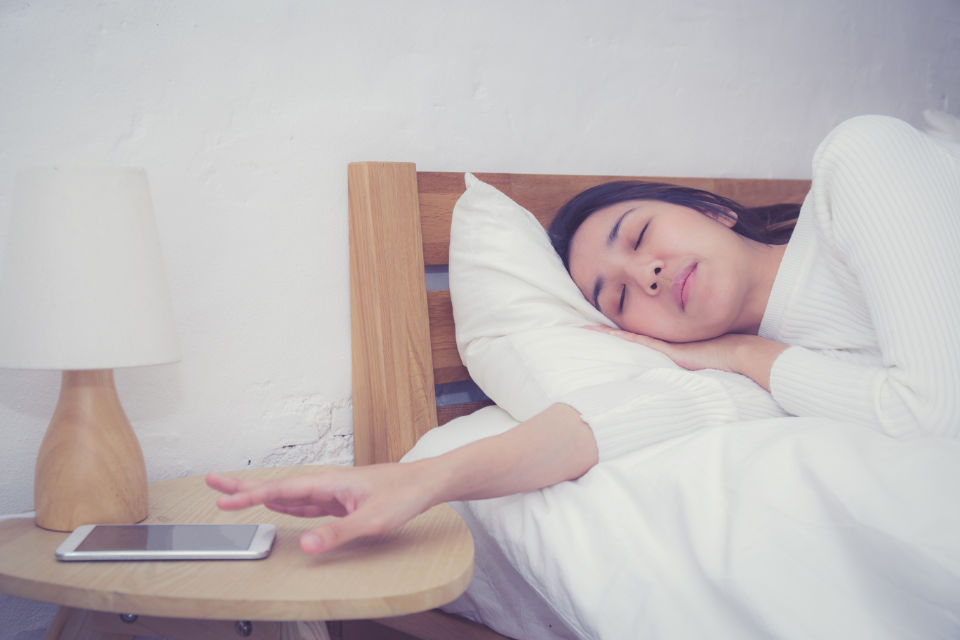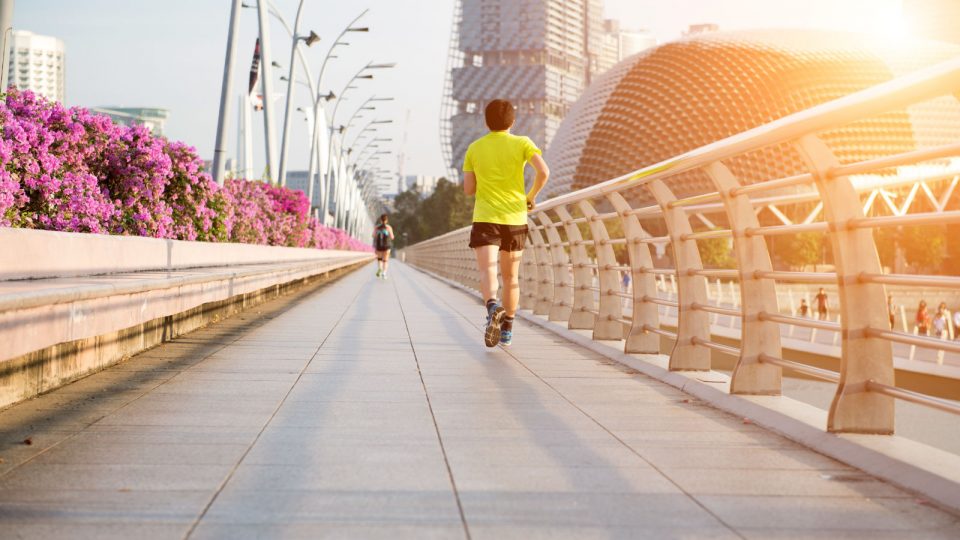Getting up in the morning could be a hassle. Often that not, we take our morning for granted and go through our daily routines, forgetting about our well-being. Whether morning looks like 6 a.m. or 10 a.m for you, you probably have started your day practicing certain morning habits.
We take a look at what scientists and wellness experts recommend about making the most and the least of the first 60 minutes after you wake up.
Here are 12 surprising things you should never do right after you wake up!
“Smile in the mirror. Do that every morning and you’ll start to see a big difference in your life.”
—Yoko Ono
1. Hitting The Snooze Button
Most sleep experts believe that you should resist the temptation of pushing the snooze button. The reason for this is quite simple. If you hit the snooze button, you might enter into a sleep cycle you likely won’t finish. It seems that if you don’t finish that cycle, you’ll wake up more tired, rather than refreshed.
The next reason is: When you hit snooze, you’re telling your goals and dreams can wait. Successful runner don’t do this. The best thing for an alert day is to commit to the first alarm, as difficult as it may be.
Instead opt for going to bed a little earlier the night before, to get sufficient rest – you’ll rise with ease and won’t need to hit snooze.
2. Checking Your Phone
According to a survey, 63 percent of smartphone users age 18-29 admit to taking a device to bed with them at night, which of course makes it really easy to reach for it first thing.

But wellness and work-life balance specialists recommend that if you like to start your day right, you should try your best not to look at your phone until you’re on your way out the door, when you’ve showered, dressed, eaten breakfast and your mind is more alert.
Whether it’s checking your social media accounts, text messages, or emails, you should refrain from grasping your mobile phone right after you open your eyes – because doing so can send you into “panic mode,” before your day has even begun. Those requests and those interruptions and those unexpected surprises and those reminders and problems are endless.
So do yourself a favour and stop checking. Your social media accounts and inbox can surely wait a couple of hours.
3. Having Dessert For Breakfast
Many breakfast staples – like waffles, cereal, and muffins – are packed with sugar and carbohydrates. While they taste delicious but once you come down from your sugar high, you’ll be left irritable and hungry for more food. Instead of a sugary, carb-heavy meal, it’s recommended to get a healthy smoothie or make one yourself. Thanks to the fruit, you can satisfy sweet-loving taste buds, while also getting in a serving of veggies.
4. Drinking Coffee First Thing
If you’re a coffee drinker, you won’t like hearing this, but drinking coffee before 9:30 a.m. is not a good idea. Scientists have found that your body naturally produces higher amounts of the energy regulating stress hormone cortisol, between 8 a.m. and 9 a.m.
By drinking coffee before or during that time will just make you jittery and hyper-alert, and confuse your body’s natural cortisol monitoring system, leading to an afternoon crash later.
Studies say that the best timing for your daily cup of coffee is after 10 a.m. and noon. Instead, enjoy a glass of water, anticipating the joy of pouring that perfect cup of coffee later on in the day.
5. Remaining Curled Up
During sleep, your spinal discs absorb fluid as part of a natural rehydration process. This causes the discs to expand, which is why you can actually be a few centimeters taller in the morning. However, this natural process also limits movement of the vertebrae and causes the spine to stiffen.
As a result, flexing and bending when you first wake up is not only harder but potentially dangerous. Don’t stay all curled up. Instead, gently stretch out wide and take up the whole bed.
Stretching out not only gets the spine and muscles limbered up, it is a way to build confidence as you being your day. According to research, people who wake up with their arms in a V-shape are super happy.
On the other hand, there is a evidence that people who wake up in the fetal position wake up much more stressed out. In fact, there is evidence that stretching first thing, helps to increase flexibility, relieve tension and improve circulation, so stretch it out!
6. Forgetting To Hydrate
After you had a good night of sleep, you’ve (hopefully) gone for seven to eight hours without water so your body is in need of hydration.

Drinking water not only helps you wake up, it can also get your metabolism moving in the right direction. Add some lime or lemon, which can helps to flush out the liver if you don’t like plain water. Besides helping to detox your liver, drinking water first thing in the morning can also help with constipation, prevent urinary tract infection (UTI), help with weight loss, boost your immune system, battle bad breath and strengthen your brain, among other benefits.
Doctors suggest drinking water at room temperature though, because cold water can shock your system and prevent the many health benefits from taking effect. So start your day with a large glass of water. It’s one of the best things you can do for your body.
7. Leaving Your Bed Unmade
Researchers reveal that forming good habits – including making your bed in the morning, is associated with increased productivity throughout the rest of the day. In fact, making your bed is a keystone habit that can spark chain reactions that help other good habits take hold.
So making your bed in the morning is a really good habit to start if you don’t already make that a priority.
8. Skipping Morning Exercise
Many experts say making exercise a part of your morning routine is particularly beneficial and we all know how important exercise is for our health and well-being.

There are added benefits to working out in the morning rather than later in the evening. Evening workouts can lead to tossing and turning if you’re hitting the gym too close to bedtime, but switching to a morning sweat session can lead to deeper, higher-quality sleep.
In addition, morning workouts help boost your metabolism, burning more calories throughout the day and increasing productivity. You’re also more likely to make healthier choices at mealtime if you’ve exercised first thing.
To make mornings easier, get as much done the night before as possible. Reducing early morning tasks means getting more shuteye and making it less likely you’ll hit snooze and skip that all-important workout.
9. Getting Ready In The Dark
Our bodies’ internal clocks are so sensitive to light, that getting ready in the dark can send a signal to your body that it’s still nighttime. This will keep you feeling groggy and out of it, rather than alert, energised, and in a really good mood.
Continually getting ready in the dark may even make you feel depressed. So if you’re up before the sun, make sure you switch those lights on.
10. Brushing After Breakfast
It’s common understanding that brushing your teeth immediately after having breakfast is the right thing to clean off all the stuff from your meal.

However, this is actually counter-intuitive: brushing your teeth right after eating can actually do much harm that good – especially if you’ve consumed acidic stuff like fruit or coffee. Brushing too soon after eating them can damage the enamel in its weakened state.
So brush your teeth after you rise, but before you eat. Then afterwards, you can floss your teeth and rinse with water to wash away any food particles. If you really can’t stand to skip brushing after breakfast, hold off for at least 30 minutes after you eat.
11. Steaming Up Your Shower
Heat tells your nervous system that it’s time for your muscles to relax, and for your heart rate to slow down. In the end, you start to feel calm – and sleepy!
To feel more awake, take a quick cold shower instead. It will signal the release of energising hormone adrenaline. It will also boost your mood. Studies shows that cold showers can fill the body with feel-good endorphins.
12. Eating If You’re Not Hungry
It always said that breakfast is the most important meal of the day, and for some people, it is. However, some people prefer not to eat in the morning, and forcing themselves to consume something for breakfast would probably be deleterious than helpful.
Instead choose another option such as intermittent fasting. One of the easiest is time-restricted fasting, or 16/8, during which you refrain from eating for 16 hours (usually post-dinner through lunchtime) and eat only for 8 hours during the day.
In addition to being a more palatable option for non-breakfast eaters, intermittent fasting benefits include weight loss, reducing inflammation, maintaining heart health, and stabilising blood sugar.
It’s All Up To You
If you ever feel like you don’t get enough done throughout the day, perhaps you’re doing some things you should not be doing in the morning. But, if you can keep your mornings more calm and restful, experts say you’ll feel better throughout the day. For a great start to your day, these recommendations that can significantly transform your life.
How do you start your day? Are you guilty of any of the things mentioned on this list? Let us know in the comments below.





